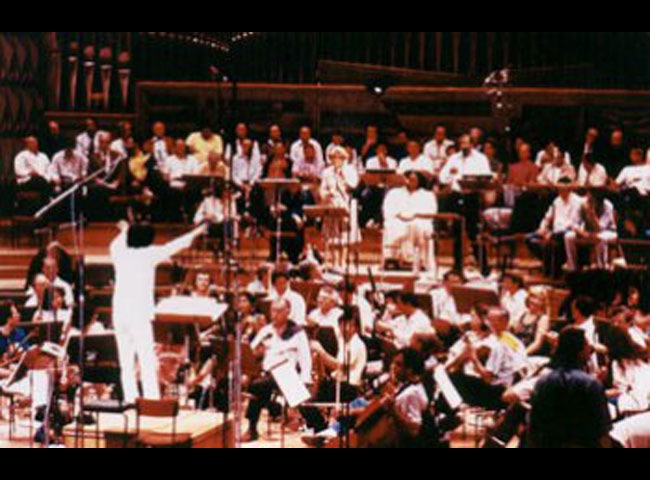Ozawa
-
Réalisé par Albert Maysles, David Maysles, Deborah Dickson, Susan Froemke, Ellen Giffard (Hovde) • Écrit par Albert Maysles, David Maysles, Deborah Dickson, Susan Froemke, Ellen Giffard (Hovde)
-
États-Unis • 1985 • 66 minutes • Couleur
- Réalisation :
Albert Maysles, David Maysles, Deborah Dickson, Susan Froemke, Ellen Giffard (Hovde) - Écriture :
Albert Maysles, David Maysles, Deborah Dickson, Susan Froemke, Ellen Giffard (Hovde) - Image :
Albert Maysles, David Maysles - Son :
Larry Loewinger - Montage :
Deborah Dickson
- Diffuseur :
Antenne 2, ZDF - Zweites Deutsches Fernsehen, CBS (États-Unis), NHK Japan Broadcasting Corp
- N° ISAN :
non renseigné
Résumé
Portrait de l'énigmatique chef d'orchestre japonais Seiji Ozawa, l'un des premiers musiciens asiatiques à avoir su s'imposer dans le monde de la musique classique occidentale. On le voit notamment à l'œuvre à Tanglewood, devant "son" Orchestre de Boston, qu'il a mené pendant 30 ans.
A backstage look at one of classical music's best- known yet least understood figures. Ozawa has been music director of the Boston Symphony since 1973, and as one of the world's top maestros he appears in such musical capitals as Berlin, Paris and Milan. Yet the first East Asian to succeed in a quintessentially Western art form remains solidly Japanese in temperament and outlook. It is this contrast of cultures-and its effect on his music making-that makes him such a provocative figure. Ozawa studied conducting with Hideo Saito, who had been a pupil of Cellist Emanuel Feuermann in Germany. He said that if you know music and have no tradition, then you must go to Europe, remembers Ozawa. Today Ozawa uneasily straddles both worlds. The exemplar of success in classical music, in Japan he is a role model to thousands of young performers. In the West, old questions about how deeply he understands music continue to dog him. Given the continuing influx of Asian performers, Ozawa's perspective is one worth heeding. Western music is like the sun, he says. All over the word, the sunset is different, but the beauty is the same. Maybe there is a way to make a marriage between this Oriental blood and Western music.
Mot(s)-clé(s) thématique(s)
Comment avoir accès au film ?
-
Édition DVD
- Il n'existe pas d'édition DVD à notre connaissance
-
Accès VOD
- Il n'existe pas d'accès en VOD à notre connaissance
- Distribution
- Aide sur les moyens d'accéder à un film
